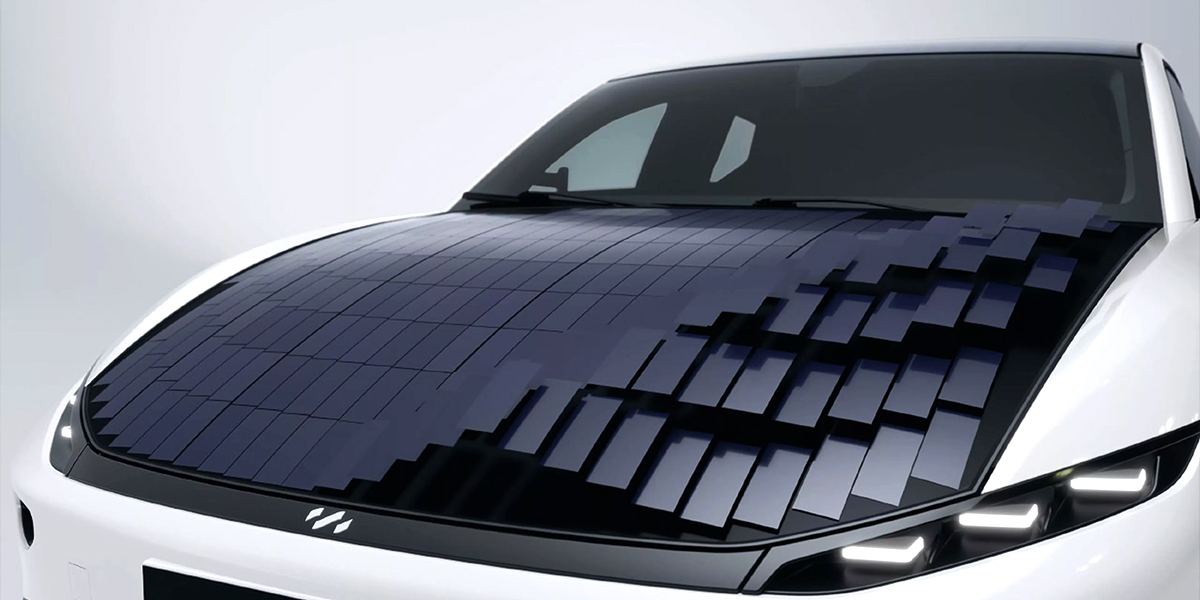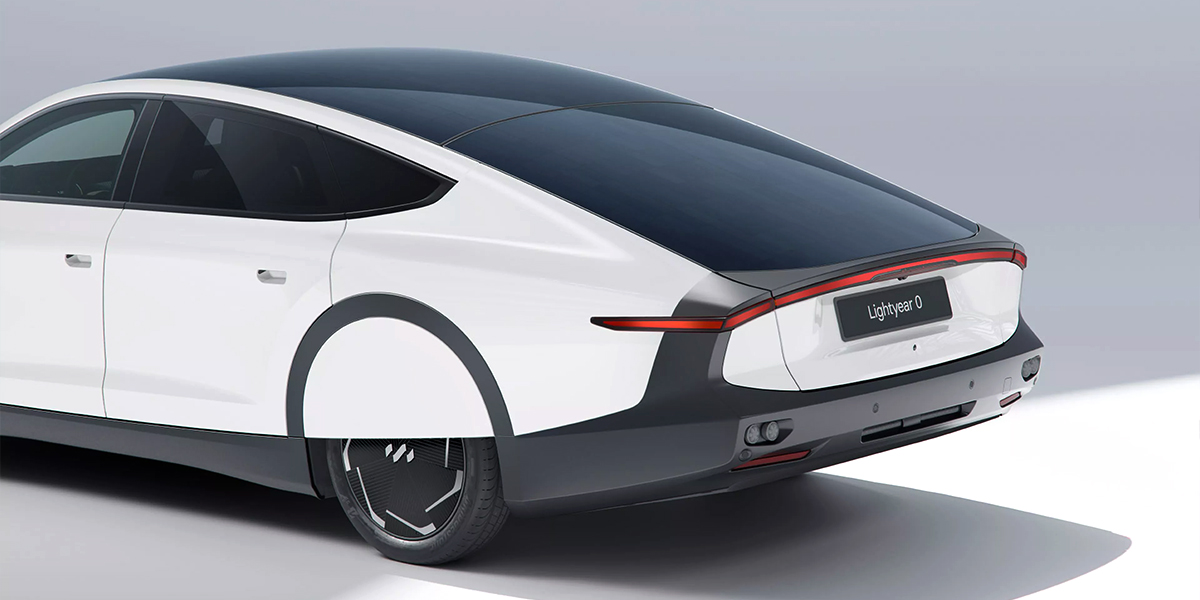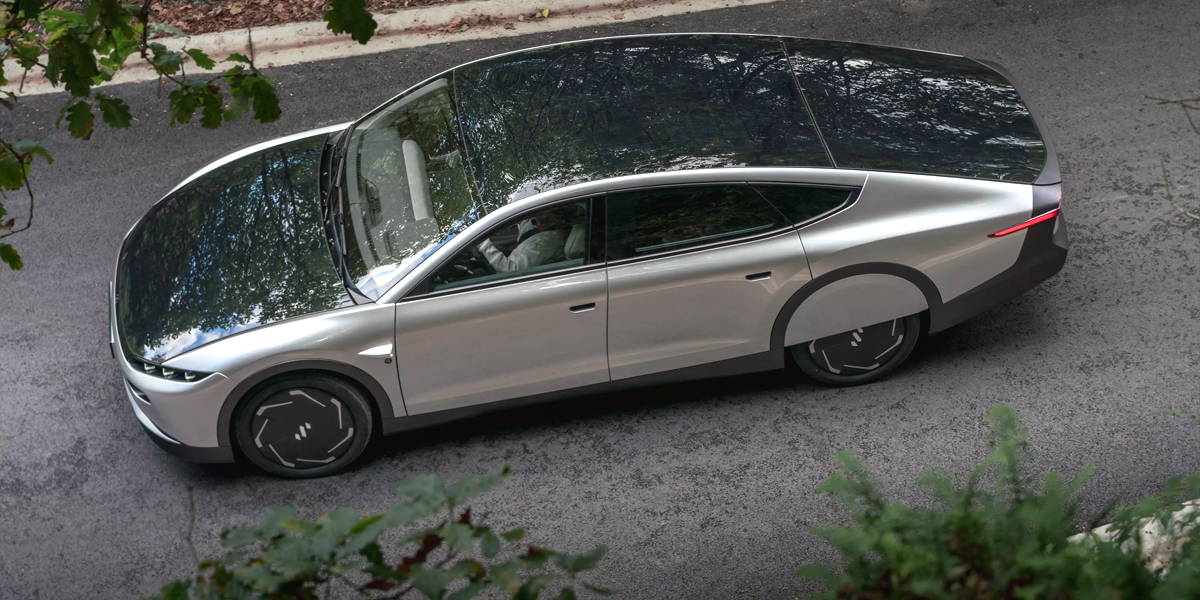So far, attempts to create such a car have been impractical and inefficient. Aerodynamics is important for EVs so it’s not as simple as just sticking some solar panels onto a car roof.
Creating an efficient EV that can harvest worthwhile amounts of power from the sun in a short period of time is a huge engineering task. The tech to build a car that can run solely on this power without the need of plugging in isn’t here yet, but there is a Dutch manufacturer that’s making some big steps forward.

Lightyear is a carmaker based in the Netherlands that’s gearing up to produce its first solar-powered EV, the Lightyear 0.
The 0 has a unique appearance with its long bonnet and sweeping roofline all covered in five square metres of solar cells that extends right back to the rear of the car.
Lightyear has tried to make the 0 as aerodynamic as possible which has resulted in a slippery design with no wing mirrors and covered rear wheels.

Drivers will be able to see what’s around them through cameras, two of which are fitted where the wing mirrors would be located and another that shows what’s behind as that cabin’s rear is covered in cells.
With the seats up, the Lightyear 0 has 474L of boot space and a healthy ground clearance of 183mm which makes it capable of exploring more difficult terrains.
Lightyear claims that the 0’s battery has a 388-mile range, which when taking into account on-the-go self-charging from the sun, can go more than 620 miles (1,000 km) between charges depending on the weather.

The Dutch firm also says that depending on where you live and the climate that you drive in, the Lightyear 0 could yield between 3,700 – 6,800 miles of additional ‘free, effortless and clean’ range per year. On a given day you could see yourself receiving an extra 43 miles of travel purely from the sun alone.
With such a large focus on squeezing every last joule out of the battery, the 0 doesn’t have the best performance specs. Four electric motors that are tucked into the wheels enable the solar-powered EV to go from 0-62mph in around 10 seconds.
At first, just 946 Lightyear 0s will be built and sold at an eye-watering £216,983 starting price. Then, if successful, the Dutch brand hopes to start production on the Lightyear 2 in 2025 which will be a mass-market model at a more affordable price.








